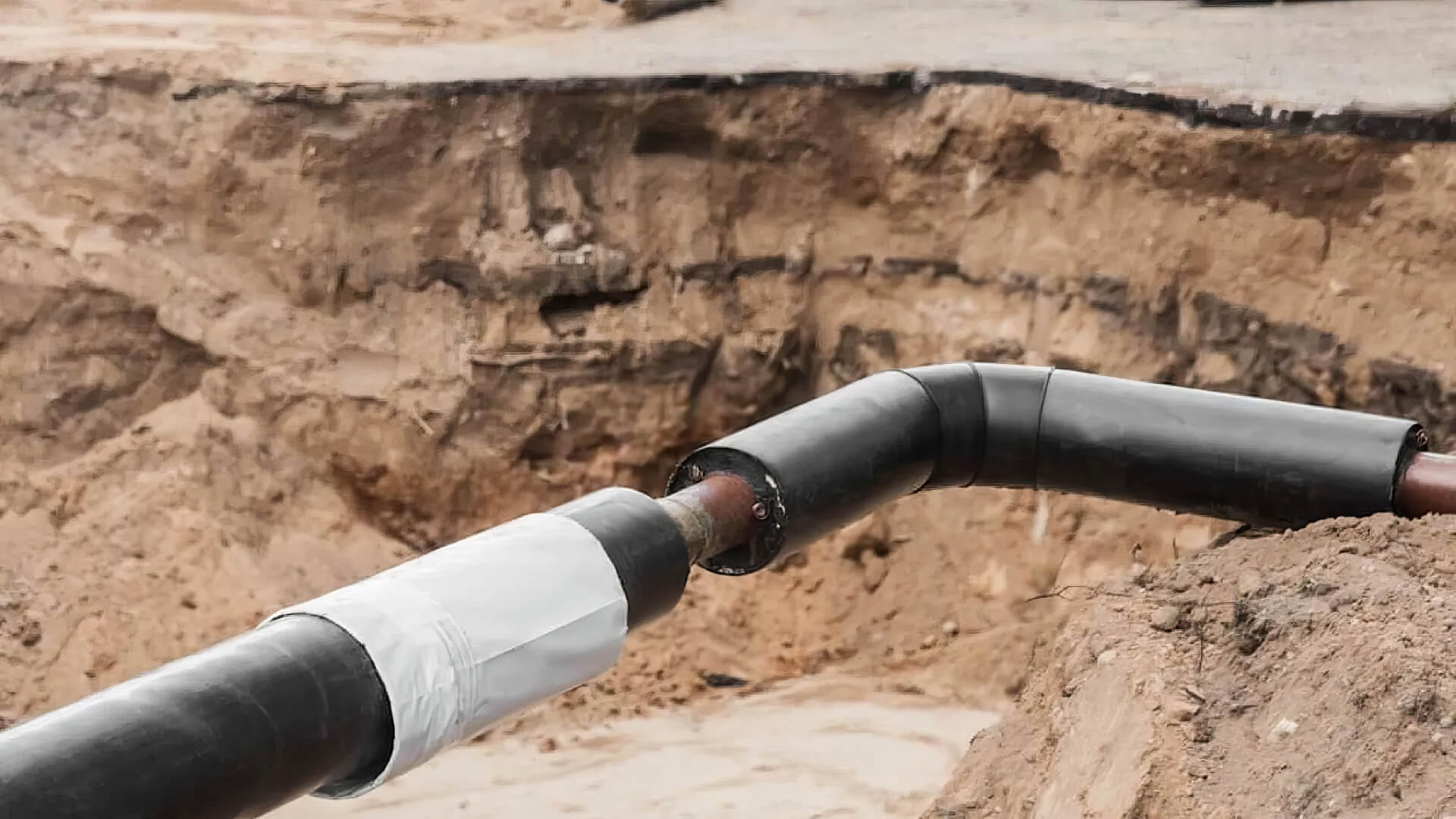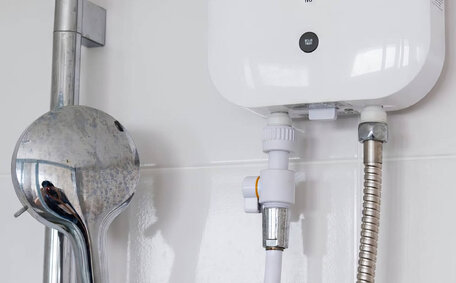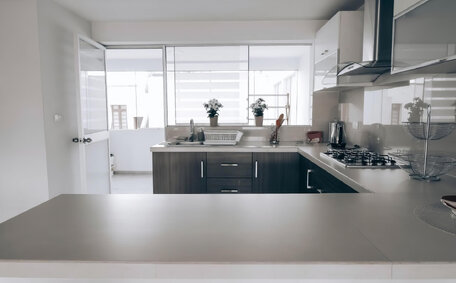Introduction to hot water system functionality
A fully operational hot water system is essential for comfort in Erskine Park homes and businesses. Gas, electric, and solar are the commonly used hot water systems, each dependent on components such as heating elements, thermostats, and valves. If these parts fail, they often lead to issues in heating and providing hot water.
The thermostat plays a pivotal role in regulating your home’s water temperature, guaranteeing efficient delivery, whereas valves control the flow of the water.
In solar hot water systems, water is preheated by solar panels, then further warmed using gas or electric heating units. Electric versions employ electrically powered heating elements, while gas systems use a heat exchanger or elements to ignite a burner that heats the water.
Maintaining these components, particularly through regular tasks such as flushing tank sediment, ensures your hot water system remains reliable for showers, cleaning, laundry, and other household needs.
Common signs your hot water system is failing
Various signs can indicate your Erskine Park hot water system is failing and may need expert attention:
- Lack of hot water - Should there be no hot water in your home or an insufficient amount emerging from faucets, your system likely requires repair.
- Fluctuating water temperature - If the water your taps deliver varies significantly or cycles between hot and cold, this could indicate an issue with the thermostat or heating element.
- Discoloured water - Rusty, brown, or dirty water points to sediment buildup or a failing tank.
- Strange noises - Unusual rumbling, banging, or hissing sounds may signify issues that can be the cause of your system’s sediment buildup, compromised heating elements, or leaky valves.
- Low hot water pressure - Blockages or leaks in the pipes or imbalanced water pressure can result in feeble water flow.
- Leaks - Water pooling or noticeable leaks around the system are warning signs of a potential lack of hot water due to cracks and corrosion.
By addressing warning signs promptly, you can prevent common hot water system issues from escalating into more severe damage or outright system failure.
Loss of hot water supply
There are numerous reasons why your Erskine Park residence or business might experience a complete loss of hot water supply.
Your electric water heaters, unlike gas systems, don’t use a pilot light; electric systems have heating elements that can trip electrical breakers if they malfunction.
Check if the pilot light is still on - if not, you’ll need to relight it.
With electric systems, check for tripped circuit breakers that may have cut power to your unit, then reset them from your electrical service panel to resume water heating.
Low water pressure can reduce hot water supply, leading to faster depletion, while sediment buildup inside the tank may clog pipes and affect water flow from your faucets.
Regular inspections of energy connections and water pressure, plus tank flushing, can usually remedy hot water flow issues. However, for more complex electrical or gas-related problems, a professional plumber should be consulted.
Inadequate or fluctuating water temperature
Inconsistent or fluctuating hot water temperatures often stem from issues with your water heater’s thermostat or heating element. The thermostat regulates the tank’s water temperature, instructing the heating element to switch on and off as necessary.
A malfunctioning thermostat over time may cause temperature inconsistencies, impairing the efficiency of your water heater.
Begin by troubleshooting a faulty thermostat to restore effective hot water supply:
- Check your pressure relief valve settings and adjust as needed. Adjust settings for warm water between 48°C to 60°C for most household uses.
- Test the thermostat by increasing the temperature and ensuring the relief valve operates properly to warm the water. Should the heating element fail to activate and heat up water, it’s probable that thermostat replacement is necessary.
- Inspect the heating element for cracks or burns which would indicate failure. Test electrical continuity.
If water temperatures fluctuate between hot and cold, it might be due to scale on heating elements or low water pressure. Descale or replace elements as needed and check for blockages in taps and pipes to ensure consistent hot water flow.
Strange noises from the water heater
Hearing odd noises like popping, crackling, or rumbling coming from your hot water system in Erskine Park likely signals a build up of sediment or mineral deposits inside the tank.
Without regular flushing and maintenance, accumulated sediment can coat and damage heating elements.
Sediment settling on heating elements can lead to erratic heating. This causes the heating elements to heat up too quickly with small amounts of water contact, then rapidly cool when more water touches them, resulting in loud popping or crackling. Softener resin beads can also deposit in the tank, causing rattling or rumbling noises as they boil.
To halt unsettling sounds, commence with powering off the water supply and draining your tank to expel sediment. Pressurised flushing with a garden hose can help remove more stubborn deposits clogging tanks and pipes. Catching and addressing sediment buildup early before major damage is done is crucial.
If noises still persist after flushing, heating elements may need replacing if they have become too coated in hard mineral scale to function quietly and properly.
Troubleshooting and maintaining your hot water system
Regular maintenance and prompt troubleshooting can prevent costly repairs or replacements to your Erskine Park hot water system. Follow these tips:
- Check the pilot light on a gas system annually and relight it if needed. Ensure the gas valve is engaged to maintain an uninterrupted gas supply to your unit.
- Inspect the heating element in an electric system for cracks or damage. Test electrical continuity.
- Annually use the drain valve to flush sediment from the water heater tank and maintain the quality of your household’s water. A pressurised garden hose can help dislodge stubborn buildup.
- Ensure your thermostat is correctly set to provide water at 48°C to 60°C for household use. Adjust higher or lower if needed.
- Consider upgrading to an instant gas hot water system if your household’s demand surpasses the capacity of the current setup.
- Installing powered anode rods in older systems can prevent corrosion and leaks.
Preventative hot water heater maintenance helps optimise efficiency and lifespan. But if issues like leaks, lack of hot water, or error codes arise, contact our Erskine Park plumbing team for prompt repairs.
Inspecting energy connections and supply
Periodically inspecting your hot water system’s energy connections and supply is crucial.
For gas hot water systems, ensure the gas line remains intact, the shut-off valves are fully operational, and verify ongoing gas supply at the meter.
Similarly, ensure the electrical power supply is not cut off by checking circuit breakers, fuses, and connections for your system. Reset or replace and faulty breakers, and address any damaged wiring or connections. Consider upgrading to more efficient power supply if experiencing frequent outages or voltage drops.
If at any point you smell gas, see sparks, or notice water coming from leaks near electrical connections, contact a professional Erskine Park plumber immediately for assessment and repair. Keeping energy supply properly connected and maintained prevents shutdowns leading to no hot water events.
Checking and relighting the pilot light
If you have a gas hot water system, one reason for loss of hot water supply is if the pilot light goes out. The pilot light provides the ignition source to light the burner and heat water. It needs to stay lit for the system to function.
To relight the pilot light, here’s a method on how to fix the issue:
- Locate the pilot light assembly at the bottom tank of the water heater. There will be a small opening you can view the pilot light through.
- Turn the gas control knob to the "pilot" setting.
- Push down the gas control knob while holding an ignition source like a barbecue lighter wand at the pilot light opening for about 60 seconds to heat the thermocouple. Continue holding down the gas control knob for 30 seconds after the pilot light is lit before releasing.
- If the pilot light stays lit, turn the gas control knob to the "on" setting and expect hot water coming out shortly. You should have hot water again after just a few minutes as the tank re-heats.
- If the pilot light goes out repeatedly after relighting, drafts from louvres, fans, or wind might be the cause. Alternatively, you may need to replace a faulty thermocouple or gas control valve.
A blue pilot light burning steadily is safe. However, if you detect a gas smell or observe yellow flames, which suggest incomplete combustion, immediately switch off the gas and get in touch with a plumber.
Resetting tripped circuit breakers
Circuit breaker trips can cause supply loss in electric hot water systems. To reset a tripped circuit breaker, follow these steps:
- Locate the electrical service panel and open the front cover.
- Find the circuit breaker controlling the power to your water heating unit. It may be labelled "Water Heater" or "WH".
- If the breaker is in the "Off" position, flip it fully to the "On" position.
- If the breaker immediately trips back to "Off", a fault may exist in the electrical wiring or heating element, preventing water from getting hot enough, thus requiring professional repair.
If the circuit breaker stays on but hot water is still not restored, check water valves are open and that heating elements or thermostats are not faulty before calling a plumber.
Identifying and replacing faulty components
Some components of your hot water system will inevitably require replacement over time. In electric systems, for instance, heating elements older than 10 years frequently burn out. It’s advisable to have a professional test these elements and replace them if they’re faulty.
If the pilot light wont stay lit on a gas system even after troubleshooting, the thermocouple or gas control valve is likely faulty.
Other commonly replaced parts include:
- Replace your thermostat if prone to calibration failures or freezing up
- Pressure relief valves that do not open to release water when excess pressure is detected
- Anode rods corroding away without preventing tank corrosion
Replacing defective or obsolete parts can revive your hot water system and avert more extensive future repairs. Our Erskine Park plumbing technicians can provide quality replacement parts tailored to your specific system.
Upgrading to energy-efficient water heating solutions
Upgrading to a more energy-efficient hot water system in Erskine Park can enhance efficiency and longevity while saving on energy bills. Traditional storage tank heaters with standard electric water elements can waste a lot of energy reheating water. Switching to a tankless water heater that heats water on demand can curb energy losses.
As water flows through the unit, burners or elements rapidly heat it. Tankless models rank among the most energy efficient water heating solutions.
Even upgrading to a storage tank model with a powered anode rod that helps prevent corrosion can be worthwhile. Newer energy-efficient tanks have better insulation to minimise heat loss as well. Our team can help select suitable energy-saving water heater upgrades to meet your household needs while saving money long-term.
Seeking professional help for complex issues
While basic troubleshooting like relighting pilot lights or resetting breakers can resolve simple hot water problems, it’s crucial to call professional Erskine Park plumbers for complex repairs or replacements.
Issues like chronic sediment buildup, corroded pipes or tanks, major leaks, and repeatedly malfunctioning gas valves or heating elements typically require our technical expertise. We have specialised tools and knowledge for tasks like:
- Conducting video inspections of pipes to locate any issues that can cause leaks or obstructions
- Chemically cleaning pipes and tanks to remove years of scale accumulation
- Testing and replacing faulty thermocouples, thermostats, pressure relief valves
- Sourcing and installing correctly sized replacement water heaters
For emergencies such as gas leaks or electrical hazards, contact your local 24/7 plumber right away. We are committed to lasting solutions rather than temporary fixes that might cause early system failure.
Upgrading ageing water heaters also prevents problems down the road. Our technicians will identify the ideal system to ensure reliability, efficiency, and suitability for your requirements. Contact Erskine Park Plumbing to learn more about maintenance, complex repairs or new hot water system installations.






